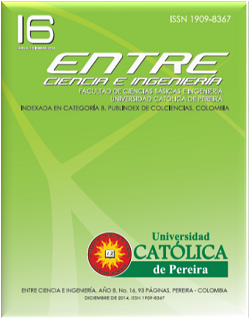Communication, meaning and thinking preferences: contributions to learning in computer programming
Keywords:
: meaningful learning, communication, thinking preferences, meaning conceptAbstract
The Meaningful Learning Theory, its essence the concept of meaning, and the use of a thinking preferences model, from the idea of education as a communication process, makes it possible that the computer programming area, in its first steps (Programming I and Programming II), has reduced low levels of academic performance in the last six semesters. The strategies adopted in these courses have permitted a notorious improvement in terms of knowledge on programming logic in the students, which can be noticed in the next courses in the same area, and a better use of new technologies in communication and personal relationships among teacher and
students, improving the academic climate and facilitating the use of a specific knowledge based on what is called meaning concept. All this was used in the learning process of the students who are attending the program Computing and Systems Engineering, at Universidad Tecnológica de Pereira.
References
Gonzalez Alvarez, C. M. (2012). Aplicación del Constructivismo Social en el aula. Ciudad de Guatemala: Organización de Estados Americanos para la Educación, la Ciencia y la Cultura.
Diáz Alvarez, C. J. (Julio - Diciembre de 2013). Mapas mentales y estilos de aprendizaje: aportes a la enseñanza (aprendizaje en un espacio formativo en Ingeniería). Revista Educación en Ingeniería, 8(16), 45-52. [12]
Vigostky, L. (1988). El desarrollo de los procesos psicológicos superiores. Ciudad de México: Editorial Crítica. [4] Trejos Buriticá, O. I. (2012). Significado y Competencias. Pereira: Gráficas Trujillo.
Trejos Buriticá, O. I. (2005). Fundamentos de Programación. Pereira: Editorial Papiro.
Galindo Vega, E. (2013). La comunicación docente - estudiante en el aprendizaje de la matemática (Tesis). Bogotá: Universidad Central.
Martin-Barbero, J. (2002). La Educación desde la Comunicación. Bogotá: Norma. [13] Herrmann, W. (1988). Creative Brain. New York: The Ned Herrmann Group.
Rizo-Patrón, R. (2010). Diferencia y otredad. Areté Revista de Filosofía, XXII(1), 87-105. Orozco Gómez, G. (2011). La investigación en Comunicación desde la perspectiva cualitativa. México: Ediciones de Periodismo y Comunicación Social.
Piaget, J. (2001). Psicología y pedagogía. México: Editorial Crítica.
Peirce, C. S. (1991). Peirce on signs: writings on semiotics. USA: University of North Carolina Press.
Piaget, J. (1986). Inteligencia y afectividad. Buenos Aires: Aique.
Ausubel, D. P. (1986). Sicología Educativa: un punto de vista cognostivo. México: Trillas.








 Revista Entre Ciencia e Ingeniería
Revista Entre Ciencia e Ingeniería .png) entrecei@ucp.edu.co
entrecei@ucp.edu.co.png) ISSN (Impreso) 1909-8367 - ISSN (En Línea) 2539-4169
ISSN (Impreso) 1909-8367 - ISSN (En Línea) 2539-4169 Attribution-NonCommercial 4.0 International (CC By-NC 4.0)
Attribution-NonCommercial 4.0 International (CC By-NC 4.0)
.png) Carrera 21 No. 49-95 Av. de las Américas, Pereira, Risaralda, Colombia
Carrera 21 No. 49-95 Av. de las Américas, Pereira, Risaralda, Colombia